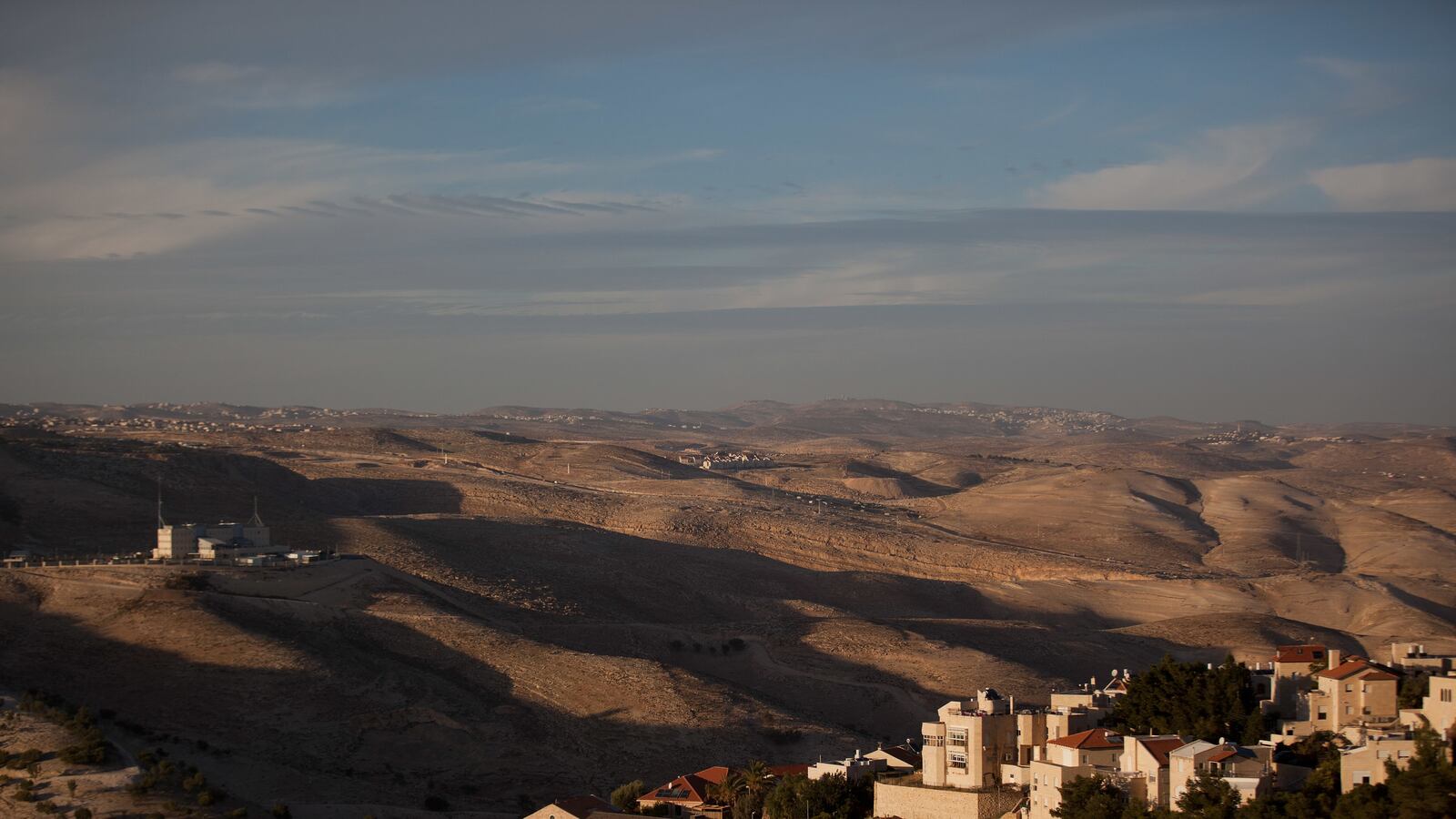Over 500 U.S. rabbis, cantors, rabbinical students and cantorial students have signed an open letter to Israeli Prime Minister Benjamin Netanyahu, warning against his decision to advance settlement construction in the sensitive E1 area of the West Bank and build 3000 new housing units in East Jerusalem. The decision, which was announced the day after the U.N. voted to upgrade Palestine’s status, constitutes “the final blow to a peaceful solution,” the letter states. “If Israel builds in E1, it will cut East Jerusalem off from its West Bank surroundings and effectively bifurcate the West Bank. In doing so, E1 will literally represent an obstacle to a two-state solution.”

The appeal to Netanyahu, coordinated by Americans for Peace Now, J Street and Rabbis For Human Rights-North America, uses three rhetorical strategies to make its case. While they’re all sure to fall on deaf ears within the Netanyahu administration, they do stand to be heard by the Obama administration and the American Jewish community, suggesting that these two groups are the letter’s real implied audience.
First, the signatories argue that, contra popular belief, you don’t have to live in Israel to have an opinion about it. American Jews’ support for Israel has earned them the right to criticize it:
We and our communities have worked hard to build bipartisan support for Israel. We have raised millions of dollars to develop the State of Israel and its civil society. And we have vigorously opposed efforts to delegitimize the Jewish State.
Second, the signatories suggest that their American-ness makes them particularly attuned to one of the dangers of proceeding with settlement construction:
As American rabbis and cantors, we also fear that construction in E1 damages the critical relationship between Israel and the United States. Construction in E1 would violate repeated commitments to the United States, dating back to 1994, not to build settlements in the area… We cannot afford to weaken the strong bond between Israel and the United States.
But this argument, like the first, is sure to be ignored by Netanyahu, who responded to the Obama administration’s opposition to E1 construction by stating that “Israel will continue to stand by its essential interests even in the face of international pressure, and there will be no change in the decision that was taken.”
The rabbis, who are presumably aware of this, go on to appeal to Jewish tradition:
The Mishna (Pirke Avot 1:12) tells us, "Be of the disciples of Aaron, loving peace and pursuing peace, loving humankind and bringing them closer to the Torah." The commentary on this saying in Avot d'Rabbi Natan tells us that it is not enough merely to love peace, but that one must pursue it as strenuously as Aaron did…We pray that you follow Aaron’s example by returning to the negotiating table as quickly as possible.
Of the three rhetorical strategies, this one seems least likely to work on Netanyahu, if only because he proved, just last month with Operation Pillar of Cloud, that he’s not exactly keen on following in Aaron’s footsteps. As I wrote then, the Talmud teaches that the biblical Pillar of Cloud was a special gift conferred upon the Israelites because of the merit of Aaron, whose passion for peacemaking was his quintessential quality. Yet Israel’s eponymous military operation in Gaza wasn’t exactly an expression of that quality. Netanyahu wasn’t interested in negotiating then, and, one suspects, a letter signed by 500 U.S. rabbis and cantors isn’t going to make him interested in doing so now.
Perhaps, then, the real usefulness of such a letter lies in its ability to send a strong message, not to the Netanyahu government, but to the Obama administration. The letter seems to tell the president: Despite what the recent opposition to Chuck Hagel’s potential nomination might suggest, not all pro-Israel Jewish leaders expect you to prioritize support for Israel above all else. Unlike Josh Block and Abe Foxman, we are the leaders that the majority of American Jews have actually heard of—because, you know, they see us in synagogue every week. And we don’t hesitate to criticize Israel or castigate Netanyahu when necessary. You shouldn’t hesitate, either.
Rabbis For Human Rights-North America’s Jill Jacobs confirmed in an interview today that this is one of the letter’s underlying goals. “I think it’s important for Obama to hear that American Jews will support him in pushing Israel to do the right thing,” she stated. “I also think it’s important for the American Jewish community to hear that supporting Israel is not black and white—that sometimes the best thing you can do for Israel is to tell its government when it’s making a mistake.”
While the letter seems doomed to fail within the Netanyahu administration, then, there’s still a chance it will impact Obama and American Jews—and that, if the choice of rhetorical strategies is any indication, is its real goal anyway.





